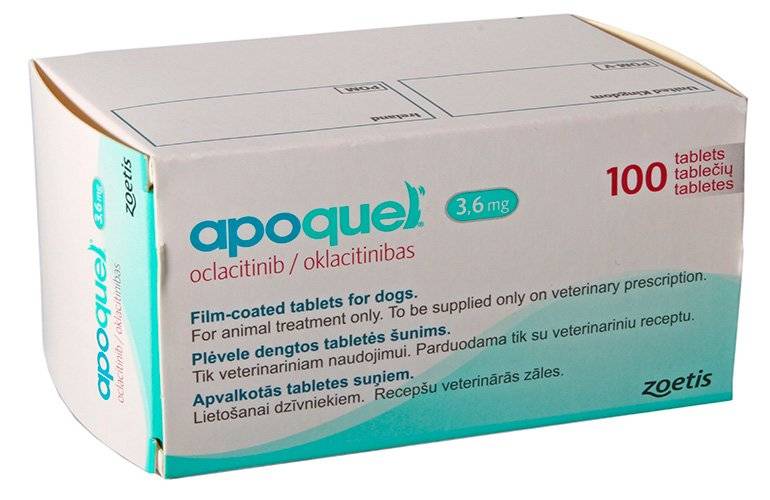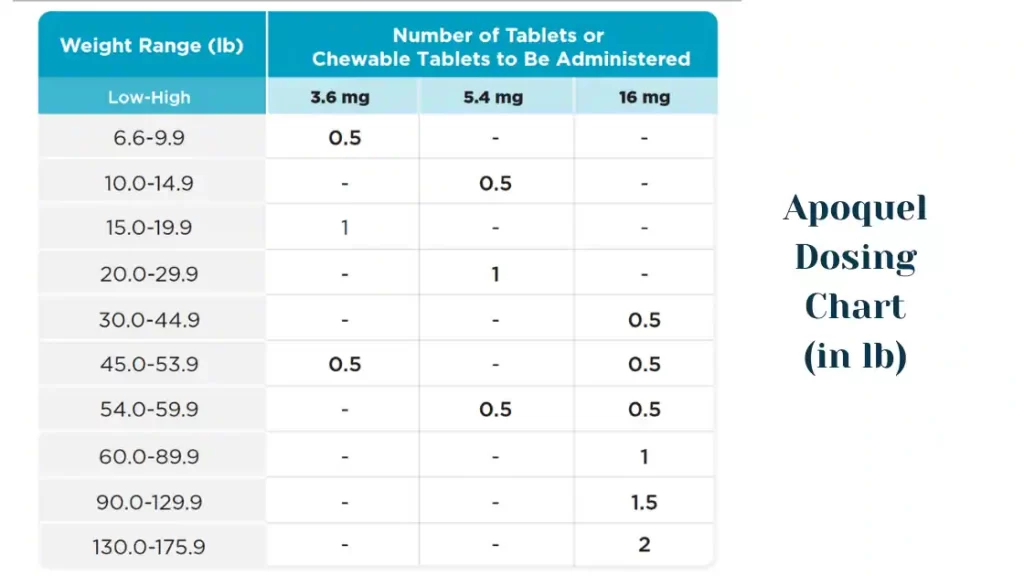Is your canine companion suffering from incessant itching and scratching, leaving you both miserable? Finding effective and safe alternatives to Apoquel, a common allergy medication for dogs, is crucial for their well-being and can significantly improve their quality of life. This article delves into various options, from prescription medications to natural remedies, to help you navigate the complexities of canine allergies and find the best solution for your furry friend.
Oclacitinib, commonly known by its brand name Apoquel, has become a staple in veterinary medicine for managing allergic dermatitis and pruritus (itching) in dogs. Approved for use in dogs over 12 months of age, Apoquel works by targeting the janus kinase (JAK) pathways in the immune system. However, its effectiveness comes with a range of potential side effects, and its high cost can be a significant burden for dog owners. This necessitates a thorough exploration of alternative treatments to ensure your dog receives the most appropriate and affordable care.
The quest for suitable alternatives to Apoquel is driven by several factors. Some dog owners seek more cost-effective options, as the monthly expense of Apoquel can easily exceed $100. Others may be concerned about the potential side effects, including vomiting, diarrhea, or the development of subcutaneous and dermal masses. Furthermore, the possibility that Apoquel might cease to be effective over time underscores the need for alternative strategies. Understanding the full spectrum of available choices empowers you to make informed decisions, leading to improved comfort and health for your cherished pet.
- Kill Tony Podcast Latest News Clips More Explore Now
- Erik Menendezs Family Daughters Stepdaughter Amp More
Before we examine the alternatives, its essential to grasp the underlying causes of allergies in dogs. Dogs, like humans, can suffer from a variety of allergies, including food allergies, medication reactions, parasites (fleas, ticks, mites), contact allergies, allergic dermatitis, and atopic dermatitis. Identifying the specific allergen is crucial for effective management. This often involves allergy testing conducted by a veterinarian.
| Aspect | Details |
|---|---|
| Drug Name | Oclacitinib |
| Brand Name | Apoquel |
| Drug Class | Janus Kinase (JAK) Inhibitor |
| Mechanism of Action | Blocks the function of certain enzymes involved in the immune response, thus reducing inflammation and itching. |
| Indications | Control of pruritus (itching) associated with allergic dermatitis and control of atopic dermatitis in dogs. |
| Common Side Effects | Vomiting, diarrhea, loss of appetite, lethargy, skin infections, and the formation of lumps. |
| Contraindications | Dogs less than 12 months of age, dogs with serious infections, or those with a history of cancer. |
| Availability | Prescription only |
| Reference Website | FDA - Apoquel Information |
One prominent alternative to Apoquel is Cytopoint, a newer medication administered as an injectable. Unlike Apoquel, which affects the immune system generally, Cytopoint targets a specific molecule, interleukin-31 (IL-31), which plays a major role in triggering the sensation of itchiness. This targeted approach can provide significant relief with fewer systemic side effects for many dogs.
Another class of alternatives includes corticosteroid drugs, such as prednisone or methylprednisolone. These medications are potent anti-inflammatory agents that can rapidly alleviate itching. However, they come with a higher risk of side effects, including increased thirst and urination, increased appetite, and potential for long-term complications with prolonged use. The decision to use corticosteroids should be made in consultation with your veterinarian, who can weigh the benefits against the risks based on your dogs specific health profile.
- Fresno Police Chief Paco Balderrama Resigns Amid Scandal Latest
- Czech Girls Fidelity Test What Happened Next
Immunotherapy, also known as allergy shots, offers a more long-term approach. This treatment involves injecting small amounts of specific allergens to desensitize the dog's immune system. Over time, the immune system becomes less reactive to the allergens, reducing the intensity and frequency of allergic reactions. While immunotherapy can be highly effective, it requires a significant time commitment and may not be suitable for all dogs.
Beyond prescription medications, a range of natural supplements and remedies can also contribute to managing canine allergies. Omega-3 fatty acids, found in fish oil supplements, possess anti-inflammatory properties and can help reduce itching and skin inflammation. Other options include quercetin, a natural antihistamine; probiotics, which promote a healthy gut microbiome; and various herbal remedies like chamomile and calendula, known for their soothing properties.
Dietary changes can also play a crucial role. In some cases, allergies are triggered by food ingredients. A veterinarian-prescribed elimination diet, where specific ingredients are removed and then reintroduced, can help identify food allergens. Hypoallergenic dog food, specifically formulated to minimize the risk of allergic reactions, may also be considered.
The approach to managing canine allergies must be customized to each dog's specific needs and circumstances. This requires collaboration with a veterinarian who can perform a comprehensive evaluation, including allergy testing, and recommend the most suitable treatment plan. The chosen approach may involve a combination of medications, dietary adjustments, environmental modifications, and natural remedies.
It is crucial to understand that stopping Apoquel abruptly can potentially trigger a flare-up of allergy symptoms. The immune system, accustomed to the medication, may struggle to function normally without it. If considering switching to an alternative, it is essential to gradually reduce the Apoquel dosage under veterinary supervision while simultaneously introducing the new treatment.
The choice of alternatives to Apoquel must consider factors such as the severity of the allergies, the dog's overall health, potential side effects, cost, and the owner's willingness to commit to a long-term treatment plan. No single solution works for all dogs.
What over-the-counter options can be useful for allergy management? While a direct substitute to Apoquel isn't available over the counter, some products can provide relief from symptoms and support overall health. Antihistamines like diphenhydramine (Benadryl) can help to control itching. However, they're less effective than Apoquel and may have sedative effects. Topical treatments, such as medicated shampoos and soothing sprays containing ingredients like oatmeal or aloe vera, can provide localized relief and help manage skin irritation. Always consult your veterinarian before using any over-the-counter medications or supplements.
Bob Ulbrich, a figure in holistic pet care, emphasizes the potential downsides of suppressing the immune system with medications and suggests considering holistic approaches that support the body's natural defenses. These might involve diet modifications, supplements, and herbal remedies. His perspective offers an alternative view on allergy management, which can be very helpful for some pet owners.
The most effective approach to managing canine allergies often involves a multi-pronged strategy. This may include the use of prescription medications like Cytopoint, along with complementary therapies like omega-3 fatty acids, a balanced diet, and environmental control measures. This combination of approaches may result in better allergy management and a healthier quality of life for dogs.
In the quest for the perfect approach to managing canine allergies, continuous evaluation is crucial. Because a dog's health needs and the effectiveness of certain treatments might change over time, regular checkups with your veterinarian are essential. Your veterinarian can assess the dog's response to the current plan and recommend any necessary adjustments to medications, dosages, or other therapies.
Selecting the right approach for your dog's allergies needs careful consideration. Start by consulting your veterinarian to find the best, most personalized course of action, keeping in mind that a multifaceted approach involving prescription medicines, environmental adaptations, and nutritional supplements may be ideal. Remember that the key is your commitment to your dogs health, your ability to work closely with your vet, and flexibility in adapting your approach based on your dog's evolving needs.
Ultimately, while the search for alternatives to Apoquel can seem daunting, the wide range of options available offers hope for dogs suffering from allergies. By working closely with your veterinarian, understanding your dog's unique needs, and exploring various treatment options, you can significantly improve your dogs comfort and quality of life. The goal is a healthier, happier dog, free from the torment of persistent itching and scratching.
- Chicago Deals More Explore Listings Latest Finds
- Milan Mirabella Onlyfans Leak What You Need To Know


